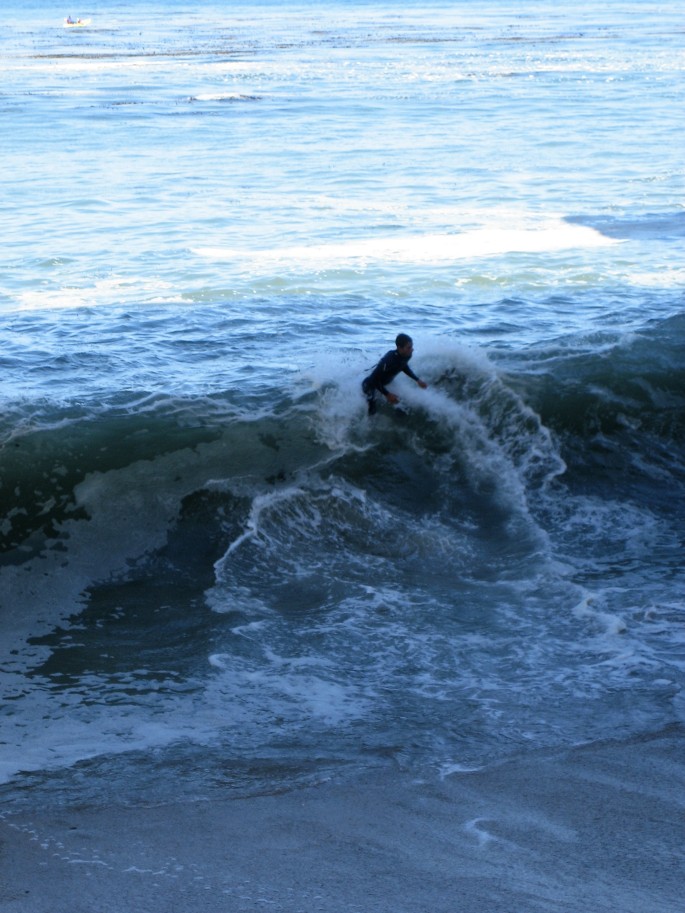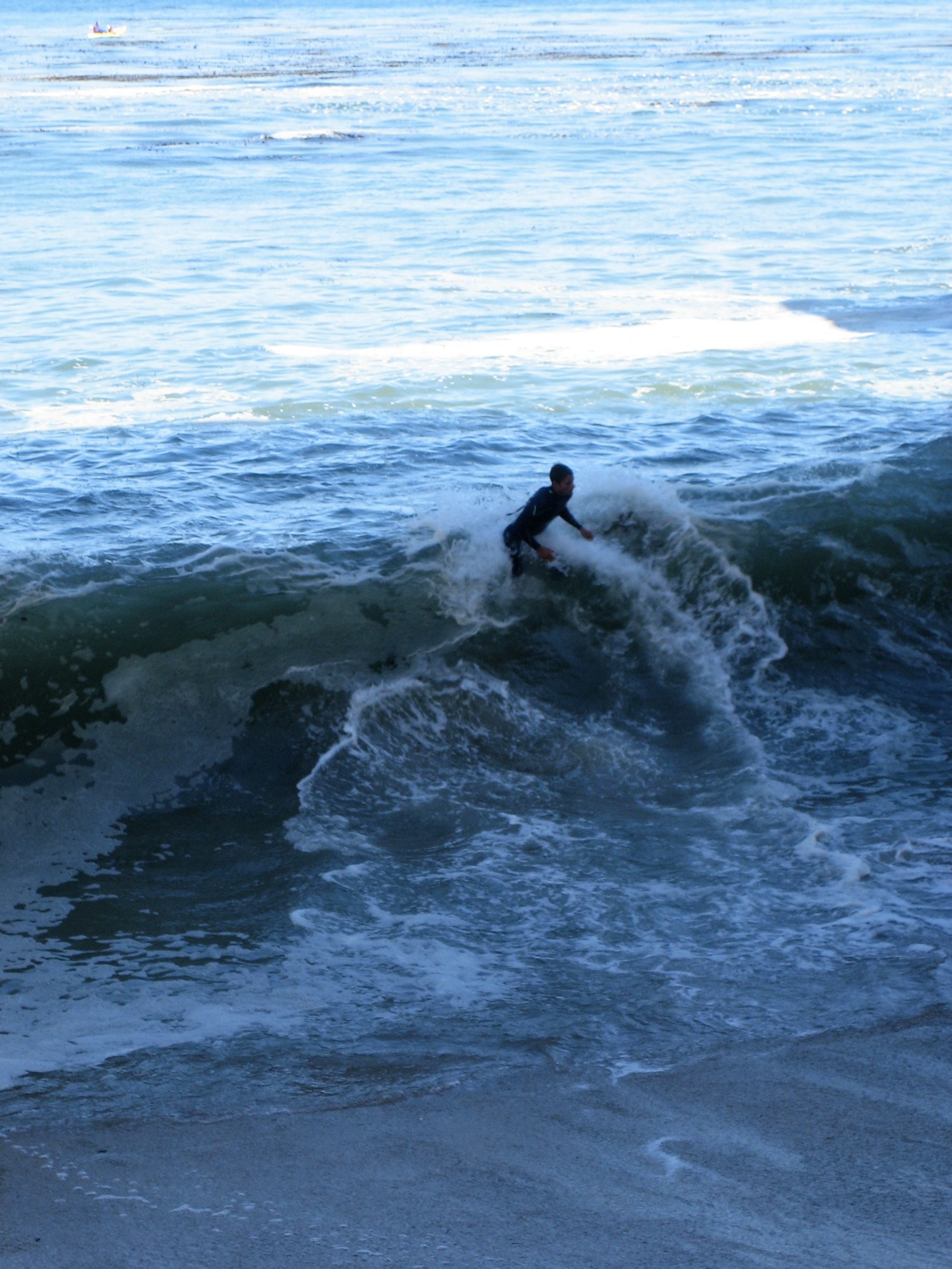
“The Pessimist complains about the wind; the Optimist expects it to change; the Realist adjusts the sails” (William Arthur Ward)
…The Surfer rides the waves of change. Sometimes falling, but always climbing back upon the surfing board, without giving up:
http://bit.ly/TheWeatherChannelFreaksofNatureBigWavesSurfing
The Weather Channel´s Big Waves Surfing video is a rather extreme example, and the purpose of sharing it is by no means a suggestion for anyone to try anything similar out personally, only to serve as a demonstration for the kind of attitude embracing change may require.
Regardless of your formal status, in your mind you can become a brave surfer who learns to master small and big waves, riding your surfing board through the waves of personal and business life.
The benefits of “mental surfing”:
- Activity – keeps you going and hinders you from stagnation
“A rolling stone gathers no moss”
- Anticipation – forecasting everything (with a 100 % accuracy) is impossible, but anticipation is equal to being prepared
“Why do great writers use anticipation instead of surprise? Surprise is merely an instrument of the unusual, whereas anticipation of a consequence enlarges our understanding of what is happening”. (Roger Rosenblatt)
- Consciousness – regular “mind-surfing” enhances your awakening-process and helps you reach untapped potential within yourself
“You are an explorer, and you represent our species, and the greatest good you can do is to bring back a new idea, because our world is endangered by the absence of good ideas. Our world is in crisis because of the absence of consciousness”. (Terence McKenna)
- Creativity – like surfing, creativity is hard work
“Creativity is 99% perspiration and 1% inspiration”.
- Development – activity together with consciousness lead to development, which is relevant for mastering change successfully
“The growth and development of people is the highest calling of leadership”. (Harvey S. Firestone)
- Education – the more you educate yourself, the better you are prepared for mastering change
“The true purpose of education is to make minds, not careers” (William Deresiewicz)
- Fantasy – Daydreaming and regular stargazing are said to increase health
“If you can dream it, you can do it” (Walt Disney)
- Innovation – All of the above are essential to your personal innovation process (and, for innovation in general)
“Without change there is no innovation, creativity, or incentive for improvement. Those who initiate change will have a better opportunity to manage the change that is inevitable”. (William Pollard)
- Learning – Change is always about learning
“Life is a series of experiences, each one of which makes us bigger, even though sometimes it is hard to realize this. For the world was built to develop character, and we must learn that the setbacks and grieves which we endure help us in our marching onward”. (Henry Ford)
- Mental mapping/training – A surfer, or any other (sports) person has to train his/her mind, and have the capability of building maps that can be useful when implemented into action in the physical world
“If the brain is a lock, the mind map is the key” (Bob Pike)
- NLP – Neuro-linguistic programming as a multi-dimensional process develops behavioral competence and flexibility in addition to being a “tool” for self-discovery
“What we think we become – your voice can change the world”
- Open-mindedness – Only with an open mind can we reach higher levels of consciousness and extend our learning experiences
“The measure of intelligence is the ability to change” (Albert Einstein)
- Playfulness – children are naturally playful, but playfulness is important throughout life in order to embrace, and live change
“Life is playfulness – we need to play so that we can rediscover the magical around us” (Flora Colao)
- Rest – Our bodies and minds need enough rest in order to stay creative
“Rest. Sleep. Let your mind have the dream s/he desires and let your body have the peace s/he deserves”.
- Silence – Recommended reading (if you haven´t read it already): Silence – The Power of Quiet in a World Full of Noise (Thich Nhat Hanh)
“Silence is the sleep that nourishes wisdom” (Francis Bacon)
- Turbulence – Life, and the world, can sometimes feel turbulent. When we all learn how to stay calm in our minds, the world will not be the same again.
“Turbulence is life force. It is opportunity. Let’s love turbulence and use it for change”. (Ramsey Clark)
- Vision – There are many ways of strengthening personal vision. Vision can be enhanced through various means, such as balancing one´s chakras, and activation of the pineal gland (third eye chakra), through regular meditation and/or yoga.
“Don’t underestimate the power of your vision to change the world. Whether that world is your office, your community, an industry or a global movement, you need to have a core belief that what you contribute can fundamentally change the paradigm or way of thinking about problems”. (Leroy Hood)
“Continuous personal development is the best possible investment”.

Reblogged this on Gr8fullsoul.
LikeLike